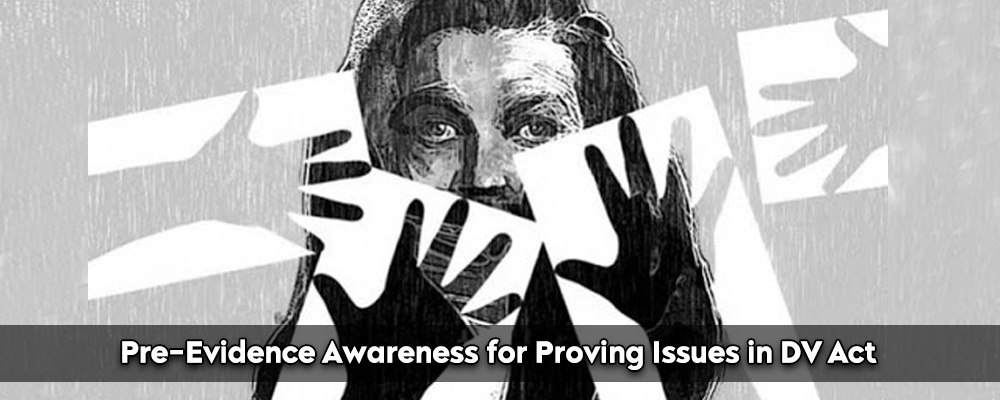In a significant ruling, the Himachal Pradesh High Court has emphasized the importance of fair and just proceedings under the Domestic Violence Act (DV Act). The court has highlighted that parties involved in domestic violence cases must be made aware of the issues or points they need to prove before being directed to lead evidence. This judgment serves as a crucial reminder of the principles of natural justice and the need for transparency in legal proceedings related to domestic violence.
Background
The Domestic Violence Act, enacted in 2005, aims to provide a comprehensive legal framework to protect women from domestic abuse and violence. It recognizes the right of every woman to live a life free from violence within her home and creates mechanisms for obtaining protection orders, residence orders, and monetary reliefs for victims.
Need A Legal Advice
The internet is not a lawyer and neither are you. Talk to a real lawyer about your legal issue

The recent judgment by the Himachal Pradesh High Court focuses on ensuring fairness and procedural justice in cases filed under the DV Act. The court observed that parties must be adequately informed about the issues they need to prove, enabling them to present their evidence effectively and avoid any potential prejudice.
Reasons for Pre-Evidence Awareness for Proving Issues in DV Act
There are several reasons why pre-evidence awareness for proving issues is crucial in cases under the Domestic Violence Act (DV Act) –
Ensuring Fairness
Pre-evidence awareness ensures fairness in the legal proceedings. When parties are made aware of the specific issues or points they need to prove, they have a fair opportunity to prepare their case, gather relevant evidence, and present their arguments effectively. This helps to level the playing field and promotes equal treatment of both parties involved.
Avoiding Prejudice
Lack of awareness about the issues to be proven can lead to prejudice and disadvantage for the parties. If a party is unaware of the key issues they need to address, they may not be able to present their evidence adequately, resulting in an unfair disadvantage. By providing pre-evidence awareness, the court minimizes the risk of prejudice and ensures a more balanced and just legal process.
Facilitating Diligent Preparation
Parties need sufficient time to gather evidence, interview witnesses, and formulate their legal strategy. Pre-evidence awareness allows parties to prepare their case diligently and present it in a comprehensive manner. It enables them to focus on relevant issues, organize their evidence, and build a strong argument, which ultimately strengthens the overall quality of the legal proceedings.
Promoting Efficiency
Pre-evidence awareness helps to streamline the legal process and enhance its efficiency. When parties are informed about the specific issues they need to prove at an early stage, it minimizes unnecessary delays and procedural challenges. Parties can direct their efforts towards gathering evidence that directly supports their case, leading to a more focused and efficient presentation of evidence during the trial.
Protecting Due Process
The right to a fair trial is a fundamental principle of justice. Pre-evidence awareness ensures that parties have a meaningful opportunity to present their case and defend themselves against allegations. By providing parties with the necessary information about the issues they need to prove, the court upholds the principles of due process and safeguards the integrity of the legal proceedings.
Role of Judiciary
Protecting the Rights of All Parties
- In the case of Sanjeev Kumar & ors v Sushma Devi, the judgment of the Himachal Pradesh High Court aims to protect the rights of both the aggrieved party and the respondent. By ensuring that parties are informed about the issues they need to prove, the court helps prevent situations where a party is caught off guard or disadvantaged due to lack of clarity regarding the case’s focus.
- The court’s decision also aligns with the broader principles of justice, which emphasize the need for a fair and impartial legal process. By ensuring that parties are aware of the issues they need to prove, the court minimizes the risk of prejudice and ensures that both parties have an equal opportunity to present their case.
This judgment serves as a reminder to all courts and stakeholders involved in domestic violence cases that the rights of all parties must be protected, ensuring a fair and just legal process. By upholding the principles of fairness, the court’s decision contributes to creating a more equitable society and reinforces the importance of transparency in legal proceedings related to domestic violence.
You can talk to a lawyer at Lead India for any kind of legal advice. In India, free legal advice online is available. Along with free legal advice online you can ask questions to experts online free in Lead India.



